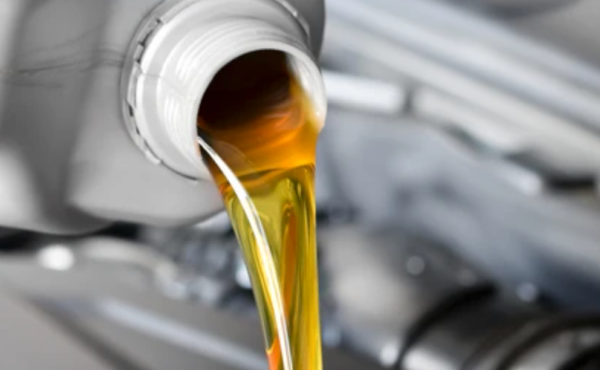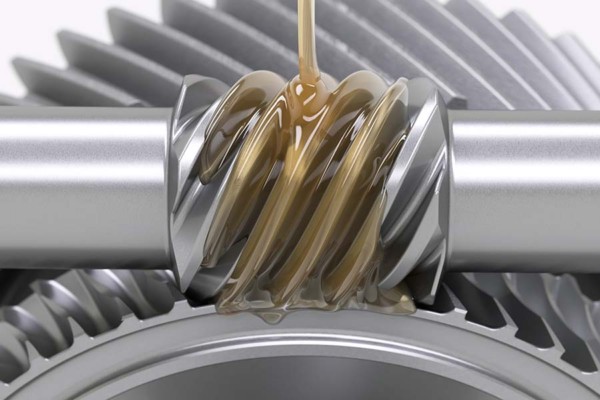If you are an owner of a screw air compressor, here is everything you need to know about the screw air compressor oil.
What is Air Compressor Oil?

Air compressor oil is specifically designed oil for an air compressor to keep it from untimely damage. An air compressor oil typically varies in viscosity and consistency. It comes in a yellow or light brown color and it becomes darker as it gets used and polluted over time. The main difference, however, between an air compressor oil and regular motor oil is that it does not contain detergent which can ultimately be very harmful. It also has lower amounts of carbon, sulphur, and other contaminants that can cause build-up.
Generally, there are 2 basic types of compressor oils:
- Standard: Made from a natural mineral oil source. Usually used for recreational compressors which are not used as often.
- Synthetic: Made from an artificial source. It goes through a lot of processes and is much better in quality as compared to the standard version. Recommended to be used in a professional environment where the compressor is used more than thrice a week.
Why do screw air compressors need oil?

Screw air compressors make use of a significant amount of oil in its rotor housing. The oil is combined with air during the compression phase and it is removed from the compressed air once the phase ends. What makes the air compressor oil so important that it is used in such abundance is discussed in the points below:
- Lubrication: The oil lubricates multiple moving parts of the compressor. Lubrication tends to minimize friction in the moving parts which, in turn, delays the failure of the parts.
- Cooling: Air compressor oil cools down the temperature of different parts of the compressor by absorbing the heat energy from hot compressed air.
- Equipment Protection: Lubrication by oil causes a thin protective layer to be formed on top of different parts. This layer protects the equipment from multiple detrimental effects like rust and corrosion by abstaining from coming in contact with water or any other corrosive material. Along with this, the air compressor oil includes different additives that prolong the oxidation process and thus the process of acid formation.
- Lifespan: The combined effects of lubrication and additives cause problems like friction, wear and tear, excessive heat, rust, corrosion to be reduced and delayed and this causes the lifespan of the parts inside a screw air compressor to be increased significantly.
- Different Temperatures: Unlike common options like motor oil, air compressor oil has a viscosity that allows it to operate at a much wider range of temperatures.
What type of screw air compressor oil is suitable to take?
Screw air compressor oils come in different types; each having different chemical properties. To choose which one is suitable for one’s compressor, it is usually recommended that they check their manual and warranty details to determine if a specific oil is required.
If the manufacturer advises using a certain oil, one must always prefer to take it for their compressor. This is because the manufacturer runs numerous theoretical and physical tests and they know the best chemical composition required of oil for optimal performance of the specific screw air compressor.
If there is no guideline given by the manufacturer, it is advised that a 20 or 30 weight non-detergent oil is taken. 20 weight to be taken if the operating climate is cold and 30 weight to be taken for hot climates.
How often should one change screw air compressor oil?
After a specified period of time, the oil starts to get contaminated and it can instead start being destructive to the compressor. Therefore, it is important to replace the oil from your compressor after a specified amount of time.
The frequency with which the screw compressor oil must be replaced is stated in a certain service maintenance schedule which is provided by the manufacturer of the compressor. It is strongly recommended to follow that schedule since the service intervals can vary drastically from compressor to compressor.
As a general rule of thumb, the screw air compressors need oil changes after about 7500 hours of usage. Even if the compressor is not used though, the oil change is advised annually to ensure smooth operation of the compressor whenever it is operated.
How to change screw air compressor oil?
The guidelines to change the screw air compressor oil are given in the compressor’s manual. The guide is extensive and easy to comprehend and thus, it is highly recommended to follow those steps.
In basic terms, the oil change process for a screw air compressor looks something like this:
- Clean the area near the compressor’s tank and oil filter to avoid contamination.
- Remove the oil drain plug and empty the old oil into a sufficiently large container.
- After the old oil is completely removed, tighten the oil drain plug back and remove the oil filter.
- Properly clean the gasket sealing surface on the front of the tank.
- Apply a thin layer of compressor oil on the rubber gasket of the new oil filter.
- Place the filter onto the threaded nipple and spin until the gasket touches the sealing surface of the tank. Properly tighten the filter so that it is completely settled on the gasket.
- Remove the filler cap of the tank and slowly start pouring the compressor oil inside the tank. Make sure to keep it steady to avoid any spills.
- Stop adding as soon as the oil reaches the “MAX” mark.
- Place the filler cap back and fasten it. Start the engine and make sure there are no oil leaks.